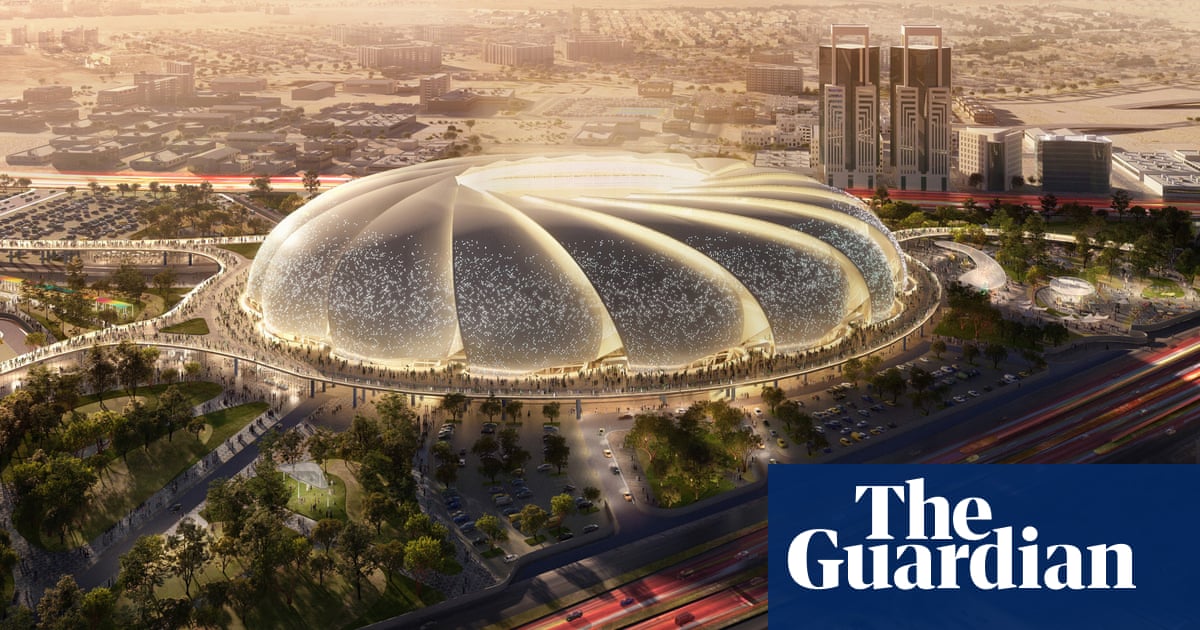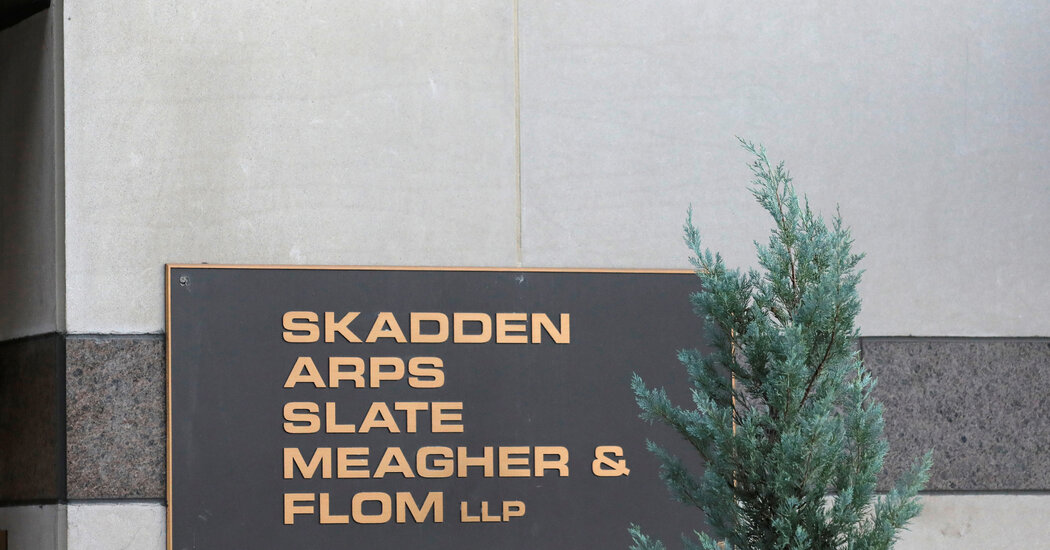
First migrant worker dies building a World Cup stadium in Saudi Arabia
A migrant worker has died while working on a new stadium being built for the 2034 World Cup, the Guardian can reveal.
Muhammad Arshad, from Pakistan, fell to his death from an upper level during the construction of the Aramco Stadium in the eastern city of Al Khobar on 12 March, according to sources with knowledge of the incident.
His death is the first-known death of a migrant worker linked to the 2034 World Cup and comes just three months after the Gulf kingdom was named the host of the tournament by Fifa.
The move was fiercely opposed by human rights groups, which warned of the risks migrant workers would face on World Cup construction sites, with Amnesty International saying: “Migrant workers will face exploitation and many will die.”
Arshad’s death was confirmed by Besix Group, a Belgian construction multinational, whose subsidiary Six Construct is one of the main contractors at the stadium.
“A team of three workers was engaged in formwork operations [creating moulds for concrete] at height when the platform they were working on tilted. While all three were equipped with personal fall-arrest systems, one worker was not connected to an anchor point at the time of the incident and fell, sustaining severe injuries,” the company said in a statement. Emergency services were immediately called, but “the worker sadly succumbed to his injuries in hospital”.
It is unclear how long Arshad had been working at the stadium, where it is understood he was employed as a foreman, but social media posts show him on the site from last September.
After his death, workers were allegedly called to a meeting and ordered to delete any video footage of the incident and not to talk to anyone about it, according to a source who was present.
Besix said: “Out of respect for the victim’s family, workers were asked not to share images of the consequences of the tragic accident on social media.
“Safety is and remains our absolute priority … The authorities are conducting a full inquiry, and we are fully cooperating to determine the exact circumstances of this tragedy,” the company said.
Arshad’s body was flown back to Pakistan on Tuesday, where his coffin was buried near his home in the north-west of the country. “We have just fallen from the sky to the ground. The whole family is in a state of shock,” Arshad’s father, Muhammad Bashir, told the Guardian.
Arshad, who was in his mid-30s, had three sons aged between two and seven. “It will have a long-lasting impact on their lives. Arshad’s income was their only source of living. We will have to bear their living and educational expenses. We will try to meet their needs,” said Bashir.
On Monday, Bashir said he had not yet been contacted directly by his son’s employer, but had been assured by a relative in Saudi Arabia that his family would receive Arshad’s outstanding salary and benefits.
Under Saudi labour law, employers must also pay compensation in the event of a death at work. Besix said it had taken steps to support the family and ensure all payments were, “handled in a timely and respectful manner”.
Construction of the 47,000-seater Aramco Stadium is at an advanced stage, with thousands of migrant workers, many from Bangladesh and Pakistan, working at the site in two shifts. It is being developed by Aramco, the state-owned oil company, which recently became Fifa’s most lucrative sponsor.
An investigation last year revealed that some migrant workers employed at the stadium were enduring highly abusive conditions. They alleged they were saddled with staggering debts from the illegal fees they were forced to pay to get to Saudi Arabia. Housed in grim, cramped rooms, they toiled for 10 hours a day in the scorching 45C (113F) summer heat for paltry wages, which some said were withheld for months.
The stadium is one of 11 new venues being built for the 2034 World Cup, alongside a huge expansion of the country’s transport infrastructure and hotel accommodation to meet the demands of an expanded 48-team tournament.
World Cup-related construction is just one part of a building boom under way in Saudi Arabia as the Gulf kingdom seeks to rebrand itself on the global stage. The construction is almost entirely dependent on a vast army of low-wage migrant workers, who largely come from south Asia.
In a statement, Besix said it had “made significant strides” in protecting workers’ rights wherever it operated, adding that sub-contractors were required to comply with welfare standards that “encompassed the full spectrum of workers’ welfare, from safety and wages to living conditions”. It acknowledged that “some local contexts have proven challenging”, and had taken additional steps to improve these standards. “Our priority is to ensure that all workers are treated with dignity and fairness,” it said.
Aramco, the local contractor on the stadium project, said the safety and wellbeing of employees was “our highest priority”.
“The company follows industry best practices in managing and reporting incidents, including determining the facts, sequence of events and root causes,” it said in a statement.
Fifa did not respond to requests for comment.








